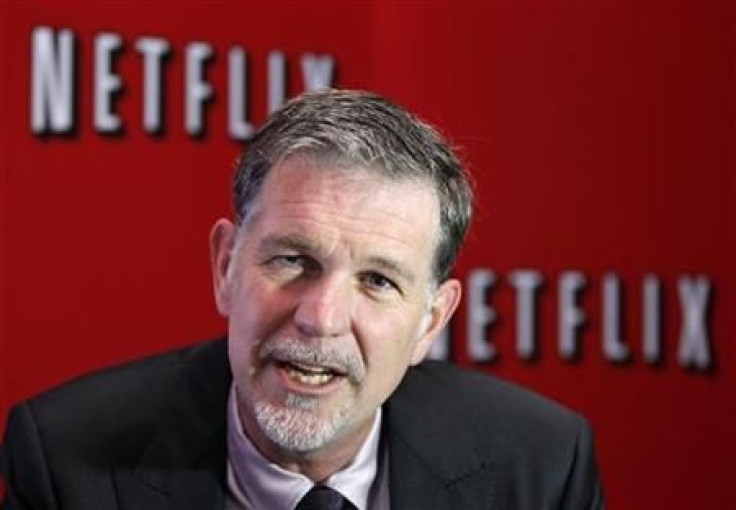Netflix Earnings: 800,000 Subscribers Leave, Will More Follow?
ANALYSIS

Netflix released its third quarter earnings Monday, reporting a loss of 800,000 subscribers as a result of its price hike in July and its botched attempt at splitting and rebranding its DVD-by-mail service into Qwikster in September.
Making matters worse, CEO Reed Hastings predicted poor performance in the current quarter, anticipating a continued drop in the number of subscribers. As a result, Netflix shares fell more than 21 percent after hours to $93.30 after closing Monday at $118.84, up $1.80.
While we dramatically improved our $7.99 unlimited streaming service by embracing new platforms, simplifying our user interface, and more than doubling domestic spending on streaming content over 2010, we greatly upset many domestic Netflix members with our significant DVD-related pricing changes, and to a lesser degree, with the proposed-and-now-cancelled rebranding of our DVD service, the company said.
Netflix recorded about 23.8 million unique subscribers in the third quarter, down 800,000 from last quarter's 24.6 million. However, Netflix reported $822 million in global revenue, up from second quarter revenue of $789 million, and even saw an increase in international subscriptions from 970,000 to 1.5 million. Net income was $62.4 million, or $1.16 a share, slightly ahead of estimates.
Netflix reported $366 million in cash. Last quarter the company spent nearly $40 million to buy back 182,000 shares.
However, Netflix expects a bleak fourth quarter, predicting no more than 21.5 million subscriptions, which could mean as many as two million more departing subscribers.
The last several months have been disturbing for Netflix, to say the least. It all started with the company's decision to suddenly increase the price of its DVD mailing service by 60 percent, from $9.99 to $15.98, causing many customers to complain or leave.
Backpedaling, CEO Hastings apologized to customers via e-mail on Sept. 19, but rather than modify the price hike, he decided to split off the company's DVD-by-mail service into a new company called Qwikster, a name that will live in infamy. In Monday's earnings release, Hastings was also apologetic.
In [Qwikster], we've hurt our hard-earned reputation, and stalled our domestic growth, he wrote. But our long-term streaming opportunity is as compelling as ever and we are moving forward as quickly as we can to repair our reputation and return to growth.
Hastings' decisions over the last quarter were handled poorly; however, he did the right thing by shuttering Qwikster before he launched it, and his company's earnings reflect this. Netflix was not hit as hard as many predicted; despite the loss in subscribers, revenue and profit continue to rise, both here and abroad.
On Monday, the company announced it would take its first foray outside the Americas by extending service to the U.K. and Ireland. Netflix also recently signed a deal with Dreamworks Animation to bring its films and TV specials to the company's online streaming service, which is reportedly worth $30 million per picture over an unspecified number of years.
As Netflix attempts to lick its wounds and rebuild trust among its subscriber base, it will face increased competition from rivals like Redbox, Amazon Prime, and even Blockbuster, which are gradually signing more partners and distributors. While the company continues to add hundreds of titles each week, its blockbuster-sized agreement to stream Starz content will end in March, thus cutting off Netflix from a bevy of Disney films like Toy Story 3 and Tangled.
Netflix's only hope is to gain more leverage through its international subscriber base. If the company can reestablish itself as the clear leader in video streaming here and abroad, it may be able to resign content distributors like Starz, or even new producers like HBO. Netflix may have a clear lead over competitors in the video rental industry, but if it continues to hemmorage subscribers through more PR gaffes, the company may eventually go the way of Blockbuster.
© Copyright IBTimes 2024. All rights reserved.












